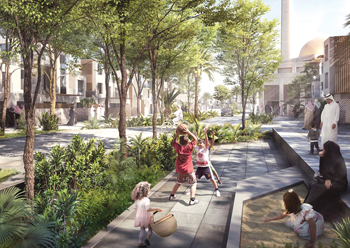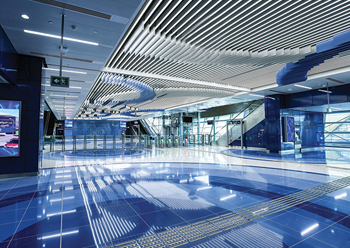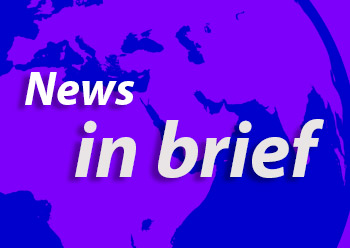
 A Route 2020 station ... Leed Gold certified.
A Route 2020 station ... Leed Gold certified.
Spanish infrastructure major Acciona says it has completed the construction of Al Khobar I desalination plant in Saudi Arabia for the Saline Water Conversion Corporation (SWCC). The seawater desalination reverse osmosis (SWRO) plant, of high energy efficiency, is producing water beyond its nominal capacity since December and is a key project in the modernisation of the water sector that is currently being carried out by SWCC.
The plant, which will produce 210,000 cu m of drinking water per day, is one of the biggest desalination plants in Saudi Arabia in terms of capacity and will be catering to a population of 350,000.
A major reason for the on-schedule project competion was Acciona’s deployment of digital twin technology.
Acciona Project Director Ignacio Lobo Gutiérrez says Acciona completed the testing programme for the Al Khobar I desalination plant and its commissioning remotely, using digital twin technology, all the way from the Spanish capital.
“Thanks to this digital twin, a team of specialists in Madrid was able to start the tests and the plant remotely, reducing the number of personnel on site to a minimum,” explains Gutiérrez.
“The technology allowed us to complete the commissioning of the plant on time, despite the restrictions on mobility imposed by the pandemic,” he states.
Meanwhile, Acciona has announced that its civil work joint venture with Gulermak, a leader in rail system projects, infrastructure projects and industrial projects, has obtained the Gold LEED (Leadership in Energy and Environmental Design) certification for three stations on Dubai Metro Route 2020 extension.
This global qualification for sustainability in construction is expected soon for the remaining four stations along the route, which will make the Dubai Metro extension the largest LEED Gold certified transit project in the world, it states.
The three stations - Al Furjan (R-72), Discovery Gardens (R-71) and The Gardens (R-70) – won the Gold Leed v4 Building Design and Construction certification.
To increase the energy efficiency and reduce the environmental impact of the metro stations, Acciona says it has optimised cooling systems, installed solar panels for energy, and used insulation for the external walls and roof claddings, among other initiatives.
Carlos Bacaicoa, Acciona Stations Manager at the Dubai Metro Route 2020, says high efficiency criteria were used in the selection of materials and systems in each of the buildings, taking into account its location in harsh climate conditions, its delicate environment and the existing resources. “The results in smart, eco-efficient and more sustainable stations, which will save considerable energy and water throughout their lifespan,” he adds.
The construction methodology used by Accion and Gulermak JV had been as respectful as possible to the environment.
The 15-km Route 2020 network includes 11.8 km of elevated viaduct and a 3.2-km underground tunnel, branching off the existing Red Line at the Nakheel Harbour and Tower Station.

















.jpg)













 (1).jpg)














































